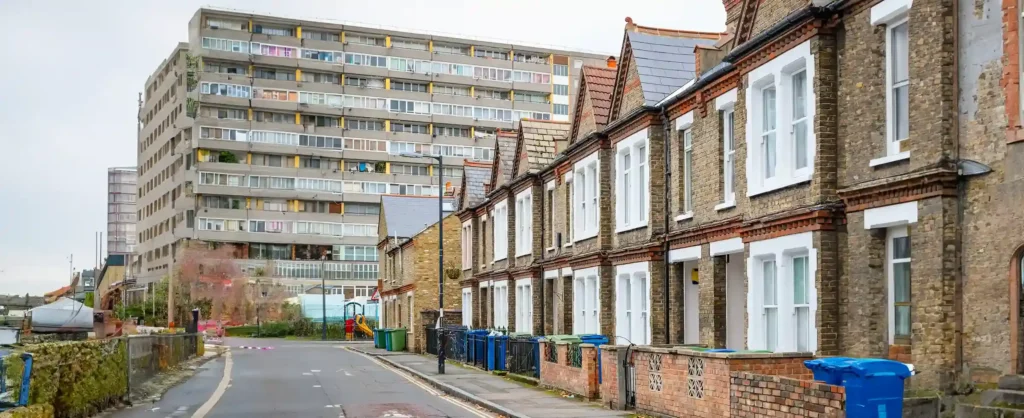Let’s just be honest with ourselves: no one enjoys paying rent. But, regardless of how much it may hurt for us tenants to admit it, landlords are as essential to the well-being of the housing market as houses themselves.
That’s why recent rumours of a landlord exodus are not so much a cause for celebration or a long-term solution to the housing crisis as they are a concern for stakeholders at all levels of the UK property sector.
Factors such as continually rising mortgage and interest rates, upcoming changes to minimum EPC ratings and the introduction of a Renters Reform Bill have already convinced many landlords that investing in buy-to-let property may be more trouble than it’s worth financially. Unfortunately, the ripple effect caused by their decisions to sell spells more doom for renters than anyone else.
What is the Renters Reform Bill and Why is it a Good Thing?
In broad terms, the Renters Reform Bill is a proposed piece of legislation that aims to balance the scales of the housing market by reinforcing the rights of renters and abolishing no-fault evictions – otherwise known as evictions where no justification or explicit reason is given by the landlord to the tenant.
Since its introduction to parliament in May this year, the bill has drawn media attention for its potential to completely shift the current state of renting, with some referring to it as a ‘once-in-a-generation overhaul of housing laws’. Aside from banning no-fault evictions, some of the most eye-catching terms outlined in the proposed reform include:
- Increased protection against excessive rent hiking, with tenants able to appeal excessively above-market prices designed to force them out
- The introduction of a new private rental ombudsman to provide fair and binding resolution to disputes brought by landlords and tenants
- An online private rental property portal to guide landlords through their legal obligations and help tenants make informed decisions
- Increased scope for tenants to request pets at their rented properties, with landlords unable to unreasonably refuse these requests
- An outlawing of blanket bans on renting to tenants on benefits or with children
On the surface, the bill seems like a net positive for the private rental sector, addressing some of the most severe pressures and obstacles tenants have been experiencing for decades. For more alarmist landlords, however, the very existence of the bill is cause for concern and yet another reason to seek their fortunes elsewhere.
What these landlords may not realise is that this bill not only gives them a more comprehensive system for recovering their properties from anti-social and non-paying tenants but also encourages legitimate tenants to trust in the private rental market by cracking down on low-quality landlords and ‘slumlords’ currently infecting it.
How Are Renters Suffering from Leaving Landlords?
Though some news outlets have described the ‘landlord exodus’ as an exaggeration, a rental market report from leading property company Zoopla suggests that 51% of landlord sales are taking place in London and the South East, where rental yields are low and extra equity is required when refinancing mortgages. The report also suggests that:
- Over 1 in 10 homes sold through Zoopla were former lettings by private landlords exiting the market in the last three years
- Higher mortgage rates have most impacted landlords with high loan-to-value mortgages of 50-75%, accounting for 20-30% of landlords
- The proportion of landlords returning to the rental market following 2020 departures has fallen to 30%
For renters, the aftershocks of these changes to the housing market are already being felt. The same Zoopla report also revealed that there are 33% fewer homes available to rent in 2023 than the average over the last five years despite demand for housing currently exceeding the average by around 50-85%. Other renter pain points were also highlighted, including:
- Annual rental inflation of 10.4% year-on-year for new let properties
- Rental costs taking up the highest proportion of earnings in a decade at 28%
- Rental costs outgrowing average earnings over the last 21 months
- The number of renters falling into rent arrears doublings in the last six months
While it cannot be strictly argued that all of these stressors are the result of landlords exiting the market, the correlation between the shortage of landlords, the shortage of rental housing and the housing and cost of living crises being faced by tenants is clear, and the conclusion is simple:
At least in the short term, landlords need a leg-up to help save renters from price-gouging.
If either party is going to survive the current housing and cost of living crises, it will mean protecting the interests of both tenants and landlords. As it stands, the ongoing changes to the assumed stability of the rental market as an area for investment have created a panic among property investors of all walks, and the widespread consequences of that panic will only add to the shortage of available housing for the nation’s renters.
How Can Landlords Maintain Their Profits?
There’s no easy solution to the problem of landlords turning their backs on buy-to-lets. As with any transition period, compromises must be made on both sides to reach the end goal of a more equitable private rental market.
The recent spate of rising mortgage and interest rates will likely continue to be a problem for the rest of the year, with financial experts arguing that palliative measures by the UK’s banking industry may ultimately lead to a financial shortfall for those who buy into them now. As such, the best option for landlords who want to avoid mortgage woes entirely without missing out on passive income may be to seek out property that avoids the hassle of mortgaging altogether.
At Concept Capital Group, we provide affordable modular housing that nets an assured, high-yielding monthly rental income while remaining mortgage-free.
With prices starting from £42,999 per unit, our individual properties and passive income packages are specifically designed to give investors of all walks the flexibility to mould their property portfolio to their liking.
If you’re a landlord feeling priced out of the current rental market or a would-be property investor who wants to establish a reliable asset that won’t be subject to growing market pressures, our fully-managed properties will allow you to secure your finances without the hassle of mortgaging. Why not book a call with our team today?













